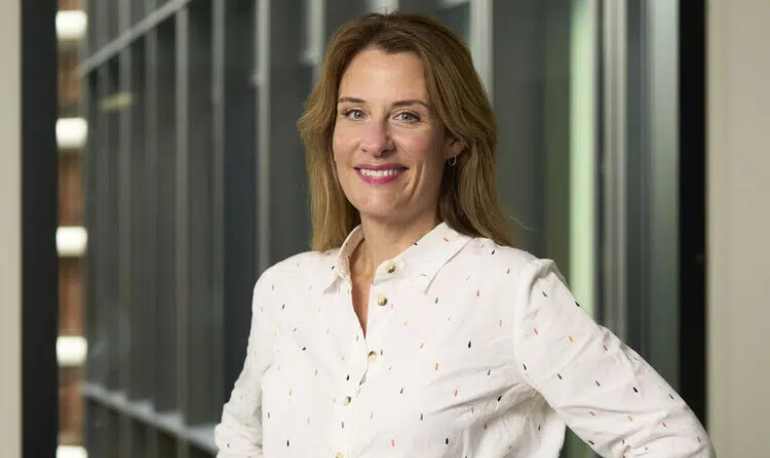Gemma Peters: ‘AI could make a huge difference when it comes to cancer’

After two decades of working in cancer research and innovation Gemma Peters concludes that it’s not the pace of innovation that limits us, but how society harnesses these advances.
The chief executive of Macmillan Cancer Support tells Digital Health News: “We need to work out how we can work together to ensure that everyone with cancer benefits from advances in care and treatment, regardless of who they are or where they live.”
Ahead of her keynote at Digital Health Rewired 2025 she explains the impact of technology on cancer care and the potential of AI to make a difference.
What potential does digital health have to improve cancer diagnosis and care?
There are so many opportunities, but what’s vital is mapping the technology to the urgent problems that people are experiencing today.
At Macmillan we work with people with cancer to understand their unique set of needs and then empower them to get the support that’s right for them, when they need it.
Digital health has significant potential to make improvements on both fronts, supporting advances in cancer treatment and care.
What’s vital is mapping the technology to the urgent problems that people are experiencing today
Digital tools can, for example, enable people to raise and discuss a much wider range of concerns than they might have time or feel comfortable to do otherwise, like sexual health.
Macmillan’s electronic holistic needs assessments (eHNAs) allow people to flag over 50 different concerns.
In turn, this can help clinical teams to better understand their patients’ priorities, life circumstances and experience of care, and help them to ensure they get the care that’s right for them.
One of the biggest barriers between people with cancer and the support they need is the healthcare system, which is struggling with growing demand and inefficient ways of working.
It’s important we use digital solutions to create capacity and bring efficiency to reduce the time needed for routine tasks and response time for people.
Digital technology can free up the invaluable time of healthcare professionals so they can focus on the moments when human connection and care matter most.
How could digitally enabled integrated care services help meet the needs of people living with cancer?
In an ideal world, digitally enabled integrated care would mean that everyone with cancer has a seamless experience of care, from the start to the end of their journey.
This may seem like a long way off, but digital technology can already help to reduce friction for people as they move through the healthcare system, facilitating more joined up care and faster decision-making.
It can enable clinicians to track the progress of their patients along the cancer pathway in real time, access data across networks and hospitals, and more efficiently communicate between teams and coordinate on the care they’re providing.
But it is of course dependent on the system seeing the value of integration and coming up with the funding.
The Oxfordshire Rapid Intervention for Palliative and End of Life Care (RIPEL) project is a good example. It uses a single care planning system, so assessors and coordinators can access patient records wherever they’re based.
Every day they hold a virtual ward round, where the care and palliative care teams check in, flag any concerns, and decide whether a nurse needs to step in for a review or visit.
Macmillan funds the social investment model that sits behind this innovative project in partnership with the non-profit enterprise Social Finance, and with grant funding from Sobell House Hospice Charity.
Do you think NHS England’s 2025/2026 priorities and operational planning guidance went far enough to improve cancer care?
The opportunity to revolutionise cancer care isn’t just in hitting targets, it’s in the national cancer plan for England and the work that organisations like Macmillan are doing with government to help shape it.
It’s positive that targets to reduce cancer waiting times have been retained in the NHS guidance, but we need to go further.
Some people with cancer are facing worse experiences and outcomes simply because of who they are or where they live, and this is completely unacceptable.
To make real progress we need to make cancer care fair, so that everyone gets world class treatment that is based on their unique set of needs.
It’s positive that targets to reduce cancer waiting times have been retained in the NHS guidance, but we need to go further
The government recently launched a large trial into AI tools for breast cancer. What is the role of AI in helping to detect and diagnose cancer earlier?
AI could make a huge difference when it comes to detecting and diagnosing cancer, in terms of improving the effectiveness and also the accuracy of services.
Currently, we know for example that cancer screening doesn’t reach everyone. Last year NHS England warned that in 2022-2023, a third of women who were eligible didn’t take up their invitation to a breast cancer screening appointment.
AI could help here, supporting clinicians to identify which groups of people are more likely to miss out on screening and then creating opportunities for them to offer more support.
It also has the potential to help identify individuals at higher risk of developing certain cancers and enable more targeted screening.
The expanded testing of AI in breast cancer screening that was recently announced is a good example of how we can start to build evidence so that we can feel more confident in using AI in healthcare.
AI won’t, however, be replacing human healthcare professionals any time soon.
Can you give us a taster of what you’ll be speaking about at Rewired 2025?
I’ll be drawing on our work at Macmillan to take stock of the progress that has been made in harnessing the potential of new technology to enable better experiences and outcomes for people with cancer across the UK.
I’ll be sharing our hopes and plans for the future. We’re working to ensure that everyone living with cancer gets the best care possible, as we spark a revolution in cancer care for the future – and collaboration is key to this.
Peters will be speaking at Rewired 2025 at the NEC in Birmingham, 18-19 March 2025. The event is co-headline sponsored by The Access Group and Microsoft. Alcidion, Nervecentre, Solventum and Cynerio are also sponsors.



